Nigeria
Makoko is a costal watery district in Lagos, that low-income earners call home for lack of a better option.
The surroundings provide ideal breeding conditions for malaria-spreading mosquitoes.
In parts of Nigeria where poor living condition means waste and stagnant water litter the streets, the danger is ever present.
Funmilayo Kotun cannot afford insecticide-treated bed nets that cost between $7 and $21 each and often falls sick.
“Where we live is not healthy [...] and I don’t use a mosquito net, we use mosquito coil (insect repellent), so when I get bitten a lot by mosquitoes, or my grandson gets biten, we come down with malaria.”
Globally, malaria cases are on the rise. Infections increased from 233 million in 2019 to 249 million in 85 countries in 2022.
Malaria deaths rose from 576,000 in 2019 to 608,000 in 2022, according to the World Health Organization.
Children under 5 made up 80% of the 580,000 malaria deaths recorded in Africa in 2022.
Stagnant water, poor sanitation and lack of access to treatment and prevention materials are all contributing factors says Adebiyi Olubukola, the founder of a local NGO called JAKIN that helps residents in deprived districts.
“In low-income communities, grassroot communities, slum communities, you are likely to have environmental factors that make malaria thrive amongst them," Olubukola says.
"They don’t have proper drainage system, they don’t have proper housing system, they don’t have proper healthcare system, they don’t have proper refuse disposal system, they don’t have proper, even personal hygiene.”
Of the 12 countries that carry about 70% of the global burden of malaria, 11 are in Africa.
Children under 5 and pregnan women most affected
NGO JAKIN is focused on education, entrepreneurship and health.
“Malaria is something we can deal with. At this point in time, [it] is not something that is supposed to be killing anybody," Olubukola insists.
"We need to do a lot more in ensuring that our communities, the standard way of living is enforced in each community across Africa. If we can strengthen our community systems to achieve these standards, then we can eradicate malaria to the core.”
READ ALSO: Kenya: Local anti malaria drug production signals progress
The malaria parasite generally spreads to people via infected mosquitoes and can cause symptoms including fever, headaches and chills.
It mostly affects children under 5 and pregnant women.
Vaccine efforts are still in early stages: Cameroon this year became the first country to routinely give children a new malaria vaccine, which is only about 30% effective and doesn't stop transmission. A second vaccine was recently approved.
Last week the World Health Organization announced that three African countries — Benin, Liberia and Sierra Leone — were rolling out vaccine programs for millions of children.
Cases of resistance to antimalarial drugs and insecticides are increasing, while funding by governments and donors for innovation is slowing.
In 2023, the WHO's World Malaria Report included a chapter on the link between malaria and climate change for the first time, highlighting its significance as a potential risk multiplier.




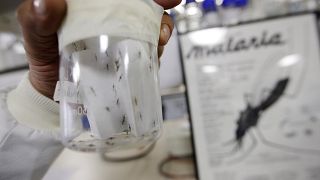
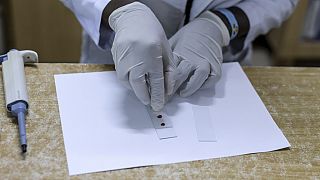
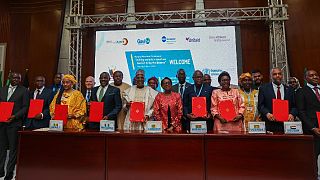
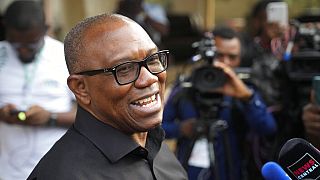

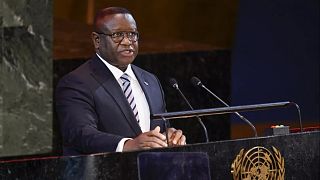



Go to video
World leaders confront gap between rich and poor at Financing for Development meeting
11:15
AI drones lead breakthrough against malaria in Africa [Business Africa]
01:46
Poverty drives instability, conflict - UN chief
Go to video
Evacuations begin: African citizens caught in Israel-Iran crossfire
02:08
Gunman attack in north-central Nigeria: death toll climbs to 150
01:14
Tinubu pardons the Ogoni Nine activists, 30 years after their execution